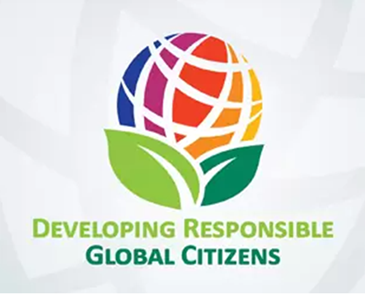In 2020, IH Sofia took the bold step of re-writing all its curricula across all kids classes (from 4-to-5 year olds to teenagers) with the ethos of “Developing Responsible Global Citizens”.
The director, Simon Harris, recognised that whilst his language school was teaching a language, they also can educate their students to become the best person they can be with a greater respect for the world and the environment around them.

Themes of “The Environment”, “Health” and “The Community” are included throughout every normal language curriculum. Students are still studying for the exams they have always prepared for, and are still using the conventional textbooks they are familiar with, but there are important shifts in focus.
In planning, the learning outcomes for each unit are re-phrased around the three main themes above: “The Environment”, “Health” and “The Community”. Then in lessons, teachers take examples or exercises from the textbook related to this, and include supplementary material and encourage discussions drawing on the relevant theme. Hence, discussion and communication in class is focused on these ideas. For example, if the coursebook topic is holidays, teachers may develop a discussion into the effect of travel on the environment; or if the topic is technology, maybe supplementary material will include a video on how technology can help endangered animals. It’s not a complicated shift; language is still being developed, vocabulary expanded, correct pronunciation and intonation taught and lexical errors corrected.
Another significant change has been to incorporate more project based learning into the curriculum. Through projects and team tasks tailored to their age and language level, children can develop the skills they will need in the 21st century - in the workplace and personally. Positive thinking, a desire to improve, creativity, social intelligence, adaptive thinking and a positive attitude to learning are all worked upon.
There are two larger group projects each year, which students present to their parents at the end of each term. The different projects (selected to match age and language ability) give students the opportunity to engage with their wider community outside the classroom, perhaps choosing something of local interest such as helping the homeless, or abandoned pets.
Implementation and Response
The academic managers at the school planned this shift in a couple of months before the start of the 2020 academic year. Then this was cascaded in the usual teacher induction process, (through videos now we are so used to recorded Zoom presentations!)
Feedback from the teachers has been positive, and students are engaged and enthused with their learning.
There are plans to expand the curriculum further for the 2021-22 academic year, and hopefully capitalise on the unique opportunity of the IH network of schools to engage students cross border and cross continent!